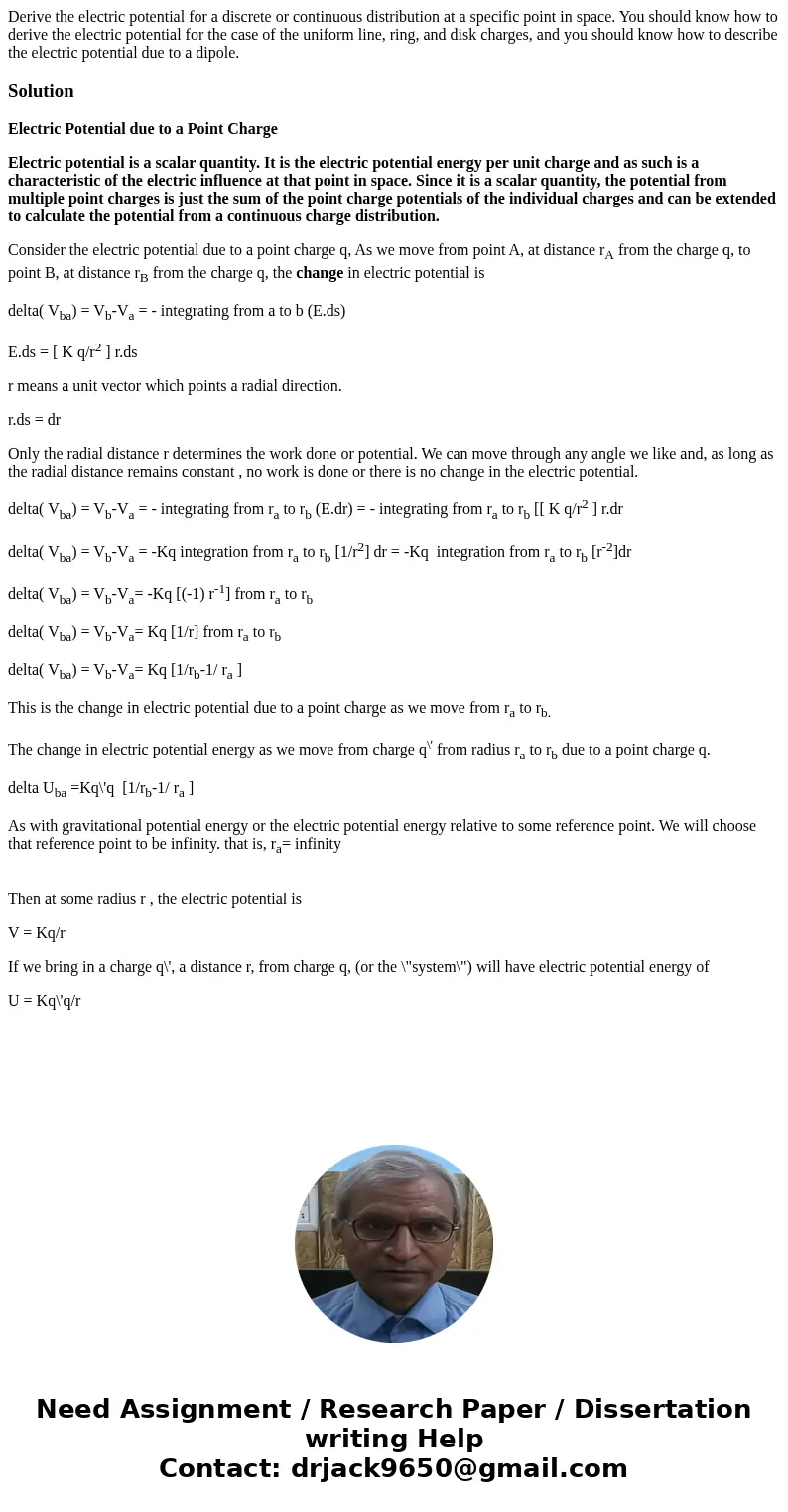Derive the electric potential for a discrete or continuous d
Solution
Electric Potential due to a Point Charge
Electric potential is a scalar quantity. It is the electric potential energy per unit charge and as such is a characteristic of the electric influence at that point in space. Since it is a scalar quantity, the potential from multiple point charges is just the sum of the point charge potentials of the individual charges and can be extended to calculate the potential from a continuous charge distribution.
Consider the electric potential due to a point charge q, As we move from point A, at distance rA from the charge q, to point B, at distance rB from the charge q, the change in electric potential is
delta( Vba) = Vb-Va = - integrating from a to b (E.ds)
E.ds = [ K q/r2 ] r.ds
r means a unit vector which points a radial direction.
r.ds = dr
Only the radial distance r determines the work done or potential. We can move through any angle we like and, as long as the radial distance remains constant , no work is done or there is no change in the electric potential.
delta( Vba) = Vb-Va = - integrating from ra to rb (E.dr) = - integrating from ra to rb [[ K q/r2 ] r.dr
delta( Vba) = Vb-Va = -Kq integration from ra to rb [1/r2] dr = -Kq integration from ra to rb [r-2]dr
delta( Vba) = Vb-Va= -Kq [(-1) r-1] from ra to rb
delta( Vba) = Vb-Va= Kq [1/r] from ra to rb
delta( Vba) = Vb-Va= Kq [1/rb-1/ ra ]
This is the change in electric potential due to a point charge as we move from ra to rb.
The change in electric potential energy as we move from charge q\' from radius ra to rb due to a point charge q.
delta Uba =Kq\'q [1/rb-1/ ra ]
As with gravitational potential energy or the electric potential energy relative to some reference point. We will choose that reference point to be infinity. that is, ra= infinity
Then at some radius r , the electric potential is
V = Kq/r
If we bring in a charge q\', a distance r, from charge q, (or the \"system\") will have electric potential energy of
U = Kq\'q/r

 Homework Sourse
Homework Sourse